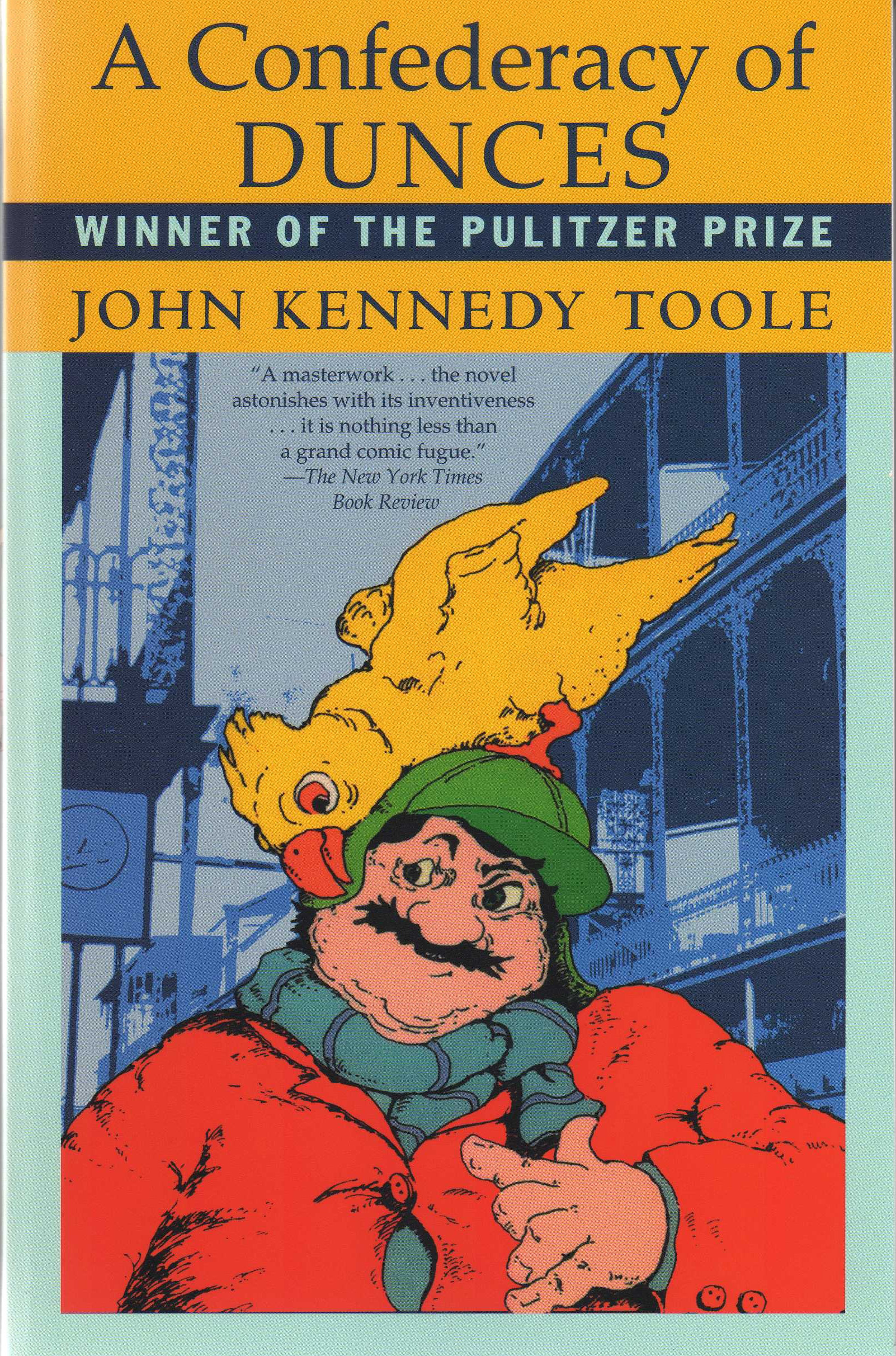For their first
paper of the semester, students in my American Literature Since 1945 class have
to treat an intensely funny novel as though it might be dead serious.
This is the kind
of novel whose main character is so impossibly hilarious that the filmmakers who
have tried (and failed) to make movie version of him can only think of top-brass
funnymen to fill the role: Harold Ramis chose John Belushi in the 1980s, in the
90s the names were John Candy and Chris Farley, in the early 00s David
Gordon Green picked Will Farrell. Now it’s The
Muppets James Bobin in the director’s chair and (drumroll) Zach Galifianakis
in the role Ignatius J. Reilly.
Galifianakis is the right man for the job. He is funny in
a way that scares me a little, that inspires equal parts pathos and
schadenfreude.
Students have to
answer the question of whether A Confederacy of Dunces is
a “Civil Rights novel” or not. By “Civil Rights Novel,” I mean a novel that is committed
to solving such big American problems as racial segregation, to doing something more than turning such problems into a literary enterprise.
Confederacy is a good candidate
for this kind of investigation. Like
Mark Twain’s Adventures of Huckleberry Finn, Confederacy is
a novel whose light-hearted fun masks a more complex statement about race
relations in America. Critics have long disagreed about what effect Twain’s book has on
race relations, and on whether the author had any philanthropic motivations at
all. This edition of Huck Finn collects all the relevant essays of that critical controversy.
One of the things
students have to do is track the novel’s representation of political activism,
as such scenes can offer insight into the author’s impressions of the civil disobedience happening in the American South at the time he wrote
the novel.
To that end, and in
honor of Martin Luther King, Jr. Day, I offer this very brief roll call of early Civil
Rights-era actions:
In 1955, there is a bus boycott in
Montgomery, Alabama, wherein African American citizens of Montgomery refused to
ride city busses, thus reminding the city how much it depends on the revenue
of citizens it forces to the backs of its busses. The boycott is lifted a year
later, after the U.S. Supreme Court declares Alabama’s bus segregation policy
unconstitutional.
In February
of 1960, four black college
students in Greensboro, North Carolina, sit down at a “whites only” lunch
counter and order coffee. When refused service, they refuse to leave. Thus the
“sit-in” is born in the American South. Many restaurants are desegregated as a
result.
Student Nonviolent Coordinating
Committee (SNCC) was also founded in 1960.
In 1961, organizers in the North
stage “Freedom Rides,” in which college students travel South in buses to test
the effectiveness of a U.S. Supreme Court decision that desegregated interstate
bus stations. When the Freedom Riders reach Alabama, violence erupts.
In 1963, Martin Luther King, Jr.
leads antisegregation marches in Birmingham, Alabama. Police attack
demonstrators with dogs, and firefighters turn high-pressure water hoses on
them. Television broadcasts of the violence shocked the nation, increasing
support for civil rights.
Later that year, national civil
rights leaders stage a “March on Washington for Jobs and Freedom,” at which
King delivers his “I Have a Dream” speech to an audience of more than 200,000.
In 1964, the SNCC recruits Northern
college students to help register voters in Mississippi. The project received
national attention when three participants were murdered.
In 1965, at an SNCC protest in Selma,
Alabama, police beat and tear-gas marchers. Televised scenes of the event shock
create broad support for a law to protect African Americans in the South who
want to exercise their right to vote.
In 1968, King is assassinated in
Memphis, Tennessee.











